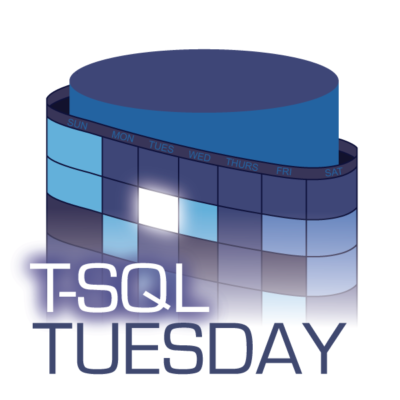
This month’s T-SQL Tuesday is hosted by Andy Leonard who has poised the question ‘What do you do when technology changes underneath you?’
I was going to begin by saying this is a very pertinent question for 2021, but frankly, it has been for pretty much the last few decades. It’s easy to forget that it wasn’t that long ago that mobile phones were, well, actually just mobile phones, and electric cars were science fiction.
At a high level I’d simply quote Leon C. Megginson, paraphrasing Darwin;
‘Lessons from Europe for American Business’, Southwestern Social Science Quarterly (1963)
“According to Darwin’s Origin of Species, it is not the most intellectual of the species that survives; it is not the strongest that survives; but the species that survives is the one that is able best to adapt and adjust to the changing environment in which it finds itself”
Essentially – ‘adapt or die’. Technology will move either with or without you, so you must adapt to it or be left behind.
Practically – as ever, there is a sea of grey between the black and white.
The train ain’t stoppin’, but what if you don’t need to get on it? Or what if you think the train is heading off a cliff? Allow me to stick with the train analogy and split how I handle technological changes into a few broad categories and examples – then discuss the topic from a DBA perspective.
- Do nothing, because I’m already on the train, at the front, on my 4th Heineken.
SSDs! If I could bold that harder I would. VR. 144hz monitors. Fitness trackers and health wearables.
This is technology that I’ll wholeheartedly jump into before it’s mainstream. I want the benefits of early adoption and am happy to take the early adopter risk and pay the early adopter tax. Maybe it won’t take off. That’s OK.
- Jump on the train when it gets here as it’s shinier than I thought it would be
The Cloud. Cryptocurrency.
This is the kind of technology that I am initially skeptical of due to limitations or other issues, but after attaining a certain level of quality and usefulness, it’s a no-brainer to get involved in.
- See the train coming, but don’t get on, because the road is still open and I like driving
‘Smart Home’ stuff.
Windows Vista….
This is change that was easy to predict, but is *not* required or going to be required for work or life in general. Yes, I know you can turn off lights with your phone now. I’m happy to use the switch.
- Reluctantly get on the train after walking for days because the powers that be have blocked the road to build another trainline
Streaming. Generally, things-as-a-service (except PaaS!). Social media. JSON…
This is change that I’d rather not embrace because of the ramifications of it, but have to. Do you want to stream 4k TV? You basically need Netflix (or similar service) at this point, despite their user-unfriendly practises of removing ratings, purposefully obfuscating view of their library, forced-autoplay, etc.
With ‘as-a-service’, control is relinquished when the service hits critical mass.
It has benefits, but also drawbacks.
Another example is videogames – home consoles and physical games aren’t dead yet, but ultimately they will all be digitised. That’ll be a sad day for me, but I get it.
Social media is a unusual one because originally they were great tools – Facebook for keeping up with friends, Instagram for sharing and exploring themed images via tags. They have unfortunately been engineered into dopamine-devouring addictive monsters that I’d now rather not grace with an install on principle, but have both a captive market and the original benefits of the tools largely still exist somewhere in there – so they remain installed.
SQL Server
Here in the MSSQL world, we’re faced with specific, cloud-based technological changes – PaaS and NoSQL.
PaaS services are gobbling up more parts of the traditional DBA day job as time goes by, and businesses and developers are exploring data solutions outside the traditional RDBMS, like the NoSQL offerings from CosmosDB etc. I believe we broadly have three options for the future;
- Do pretty much nothing. Let’s face it, we all know that loads of SQL installs will be around for another decade or two. And stuff that hangs around long enough to become legacy is often legacy for a reason – it’s too important to the business to mess with, for one reason or another. If your retirement is just a decade or so away, this is totally a viable option. You may need some cloud/PaaS supporting knowledge, but I don’t believe you’ll *need* to specialise.
- Adapt by expanding your knowledge into cloud infrastructure. OK, Microsoft have taken the details of Windows, backups and SANs away – but now we have RBAC! Performance tiering! VNETs! Geo-replication! And of course, somebody needs to administer CosmosDB too. There’s lots to learn and it’s always growing. Simply replace the stuff you don’t need to remember anymore with shiny new stuff. (But performance tuning isn’t going away – so don’t forget that.)
- Adapt by getting into ‘data’. Data engineer, data scientist, data analyst. Maybe you don’t want to stick with the Production DBA route with the changes to the role PaaS brings – this is your chance to switch tack. Try Databricks, learn Python, explore NoSQL – data is only getting bigger, and the world needs more people than ever to actually do something with that data.
’til next time!

Nice post, Alex! Thanks for participating in T-SQL Tuesday for May 2021! :{>